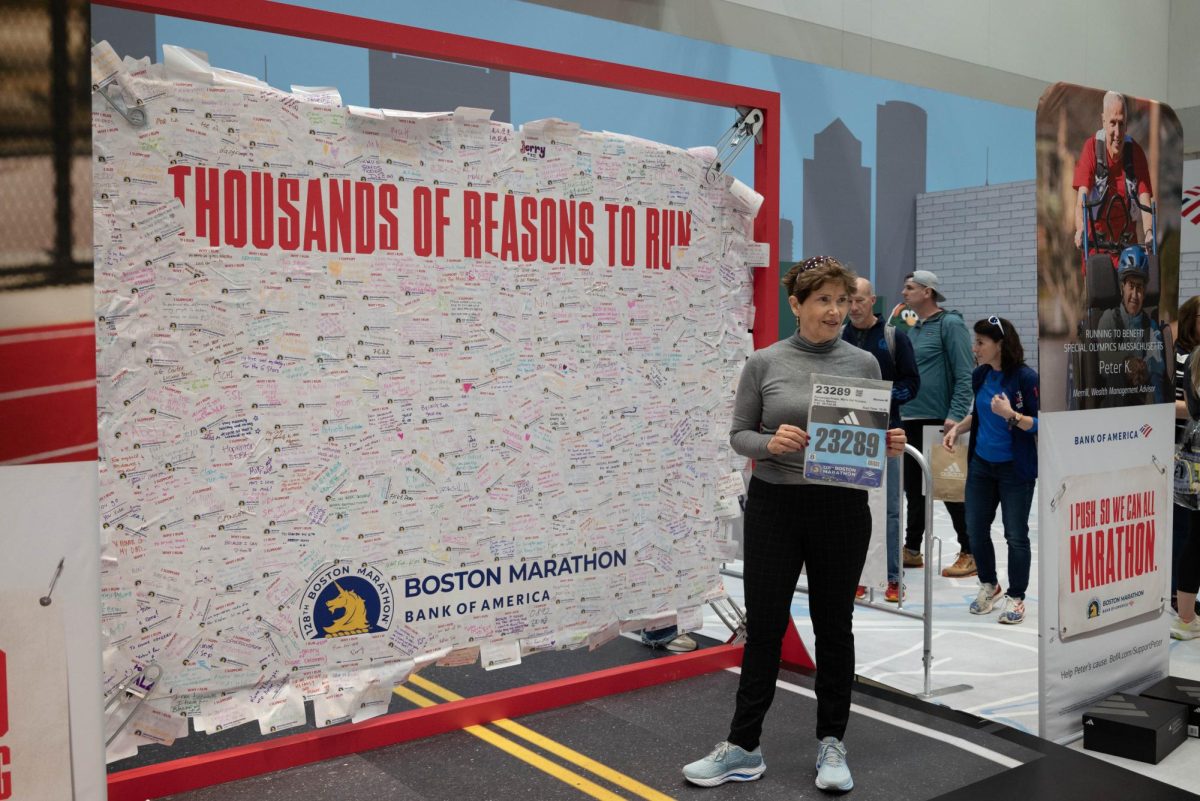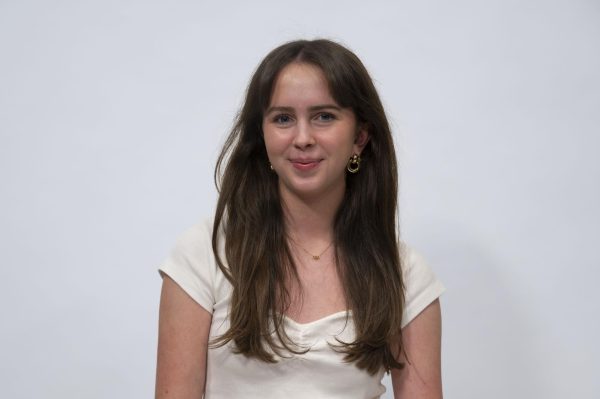“It’s one step at a time — and every step counts,” said Joan Benoit, the first Olympic Women’s Marathon champion and 1979 Boston Marathon winner.
The 128th Boston Marathon, the world’s oldest-running marathon, took place April 15. The city of Boston was in full bloom as people flocked outside to enjoy the warm weather and support nearly 30,000 athletes who attempted the infamous 26.2-mile course.
Of the many eager runners, only a select few got to bask in the glory of a first place finish — and even fewer got to do so two years in a row.
Thirty-four-year-old first-place finisher Hellen Obiri of Kenya is the first woman to win consecutive Boston Marathon titles since Catherine Ndereba in 2004 and 2005. Obiri secured the crown by just eight seconds, ending with a 2:22:37 time.
“You have to believe in yourself,” Obiri said at a Boston Marathon press conference following the race. “You believe in what you’ve been training for.”
But this achievement is much more than just a trophy. Obiri represents a long line of women who fought to be included in athletic events like the Boston Marathon. Inclusion is the backbone of all women runners’ work and the continuing efforts from athletes like Obiri that encourage more girls to enter the space.
One woman that changed the script for female runners was Joan Benoit, who was joined on a panel at the Bank of America Boston Marathon Expo by Girls on the Run Boston Executive Director Cyndi Roy Gonzalez and neuroscientist Dr. Beth McQuiston to discuss the future of fitness excellence.
Celebrating the 40-year anniversary of her Olympic gold in the women’s marathon, Benoit highlighted the importance of those who influenced her to start running during a time when it was still considered immoral.
“I need to mention Bobbi Gibb’s name, who was the first woman to run the Boston Marathon,” Benoit said at the expo. “And then Kathrine Switzer.”
In 1966, 23-year-old Gibb became the first female finisher of the Marathon, but one setback withheld her from receiving a warm welcome: her gender.
It was considered offensive for women to run long distances in the 1960s. In fact, the Amateur Athletic Union, or AAU, banned women from competing in races over a two-mile distance, and used myths as the backbone of its defense.
It was believed that if a woman took on the physical exertion of running a long-distance race, then her uterus would fall out — but Gibb was in no business to let such a claim stop her.
She finished the 1966 marathon as an unregistered participant, beginning the movement to find a place for women in long-distance running.
The next year, a 20-year-old Syracuse University student signed up for the race as K. V. Switzer, with a sweatshirt hood over her head as a disguise at the starting line. Better known as Kathrine Switzer, she went on to become the first woman to complete the Boston Marathon as a registered participant.
Marathon Chairman Will Cloney and Race Director Jock Semple ambushed Switzer at the beginning of the race, attempting to push her off the course and rip off her No. 261 bib, but her boyfriend Tom Miller shoved Semple to the ground and another one of Switzer’s teammates tried to protect her, allowing her to finish the race.
Switzer’s bib number, 261, has since been ceremoniously retired in her honor, emphasizing the significance of this milestone.
Four years later, in the fall of 1971, the AAU formally permitted the inclusion of women in long-distance running, including the Boston Marathon. Switzer stood proudly alongside seven other bold women at the 1972 Boston Marathon starting line.
It was the work of those women that propelled Benoit to win the Boston Marathon in 1979 and the first Olympic gold medal for the women’s marathon in 1984 — and she is looking to create a similar spark for the next generation.
She highlighted at the expo the importance of having strong female role models inspiring young girls and a safe space to explore their interests. Girls on the Run provides exactly that, she said.
An afterschool program for third to eighth graders, Girls on the Run recruits volunteer coaches to train girls to complete a 5K with a fun, confidence-boosting curriculum that integrates running with empowerment. With over 3,000 girls participating in 2023 from the Greater Boston area, and an abundance more nationally, the nonprofit organization looks to grow young girls’ social, emotional and physical abilities.
“We teach girls how to set goals and achieve goals that are theirs and nobody else’s,” said Gonzalez, who runs the Greater Boston council for Girls on the Run, at the expo.
McQuiston emphasized the positive impact of investing in young girls’ health, as exercise reinforces to girls that they can do anything. Running encourages people to seek their absolute best, and the jubilation on people’s faces when they cross the Boston Marathon finish line is testament to that, she said.
On April 11, Benoit surprised the Girls on the Run program at the Henderson School in Dorchester — and she made sure to bring her Olympic gold medal: proof that hard work does pay off.
“If you can see it, you can be it,” Benoit said at the expo.













